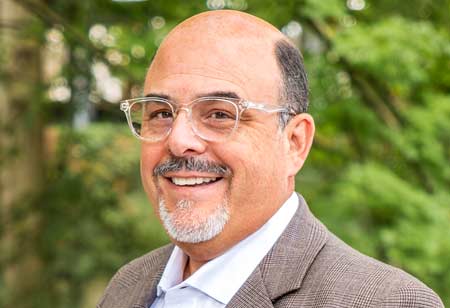

Thank you for Subscribing to Hospitality Business Review Weekly Brief

Thomas DeSousa is SVP of Business Development at the Asian American Hotel Owners Association (AAHOA), representing over 20,000 hotel owners. He leads partnership strategy, connecting members with top industry vendors to deliver value through exclusive offers, innovations and operational solutions that enhance guest satisfaction, streamline performance and support long-term success across the hospitality sector.
In an interview with Hospitality Business Review, DeSousa discusses how evolving wellness trends, tech-driven experiences and changing family dynamics are reshaping the hospitality industry.
Creating Healthier Hospitality from the Inside Out
One of the biggest challenges in the industry right now is talent management. Another key issue is understanding restaurant economics, particularly whether the emphasis is on food and beverages or on beverages accompanied by food. Technology and innovation are also central concerns, as brands seek smarter and more efficient ways to operate.
In terms of wellness trends, especially in response to a shrinking workforce, there is increasing focus on creating happier and healthier work environments. This includes ergonomic improvements such as replacing traditional heavy housekeeping carts with lightweight models similar to large travel suitcases, reducing the risk of back injuries. Vacuum cleaners are becoming lighter while offering more powerful suction and better filtration systems. There is also a shift toward using biologically engineered, non-toxic cleaning products that perform as effectively as bleach or other harsh chemicals.
To support this further, more flexible work hours are being implemented to help team members manage commuting and personal responsibilities. These changes highlight a broader effort to enhance the overall well-being of hospitality staff across many aspects of their roles.
As more families travel together, food and beverage offerings are evolving
The next generation of travelers, children 14 and younger, is highly focused, tech-savvy and often raised by Gen Z parents. Traditional activities like puppet shows or coloring books no longer engage them. Instead, they seek technology-driven experiences that promote creativity and advanced thinking.
As parents attend meetings and leave their children in hotel kids’ zones, expectations for these spaces have changed. Basic crafts have been replaced by tablet-based programs, problem-solving games and 3D model building. The focus has shifted to cognitive development and immersive engagement.
This shift extends across hospitality. As more families travel together, food and beverage offerings are evolving. Gen Alpha children, shaped by global media, have sophisticated tastes. Chicken fingers no longer suffice. Kids’ menus now feature smoothies, health drinks and even sashimi, reflecting a more health-conscious, culturally diverse dining approach.
In the coming years, Gen Alpha’s values will transform hospitality even further, not only as guests but as future employees. They are unlikely to accept fried cafeteria food, sugary drinks or artificial snacks. Their expectations around wellness are higher and more personalized.
As for what the future holds, it could involve personalized solutions, perhaps even vending machines that use AI and individual health profiles. For example, a team member might tap a card linked to their dietary preferences and the machine would display options tailored to their needs. That kind of innovation may become standard as this generation grows, both as travelers and as future leaders in the hospitality space.
Balancing Wellness and Independence in Family Travel
Recent travel trends reveal that over half of parents now seek dedicated adult time during their hotel or resort stays. This reflects a growing preference for a more balanced vacation experience, where children and adults enjoy separate activities, providing a break for both. In contrast to past generations, where families would spend nearly every moment together— eating, sleeping and exploring side by side—today’s parents and children value a degree of independence, even while traveling together.
This shift has given rise to structured opportunities such as cocktail receptions or casual social gatherings. These allow parents to unwind, engage in conversation with other adults or solo travelers and temporarily disconnect from digital distractions. Meanwhile, children can enjoy their own time in similarly relaxed but age-appropriate settings. This separation not only provides a digital detox for everyone but also encourages meaningful interactions beyond the family unit.
Another notable trend is the increasing influence children have on travel decisions. Much like how grocery stores position items at cart level to catch a child’s attention, families are now recognizing and accommodating children’s preferences. Parents are more likely to ask, “Where do you want to go? Where do you want to stay?” These questions, once rare in previous generations, are now common. Children, often equipped with their own research, weigh in on restaurant choices and destination activities, marking a significant generational shift in how vacations are planned and experienced.
I agree We use cookies on this website to enhance your user experience. By clicking any link on this page you are giving your consent for us to set cookies. More info

However, if you would like to share the information in this article, you may use the link below:
https://www.hospitalitybusinessreviewapac.com/cxoinsight/thomas-de-sousa-nwid-751.html